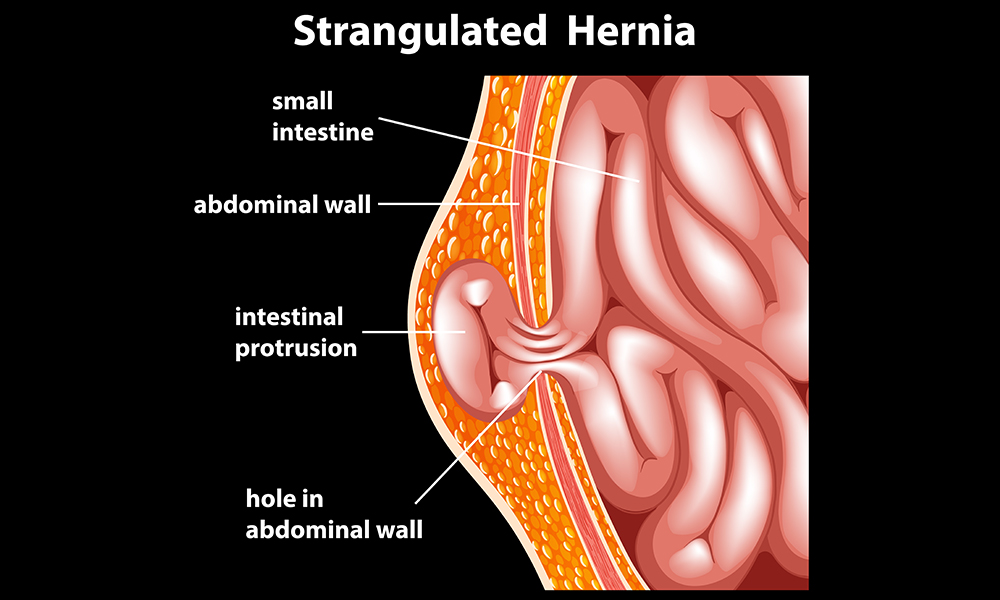-
 Toll Free No 9146-744-744
Toll Free No 9146-744-744 - Appointment
When fatty tissue or an organ pushes through a weak spot in the nearby connective tissue or muscle wall, it causes Hernia! Typically, hernias don't heal on their own. They become larger. They occasionally cause life-threatening consequences. Because of this, doctors generally advise surgery. The condition that occurs more often in the abdominal wall is an inguinal hernia.
It occurs when the intestine pokes out through one of the two inguinal canals, which are openings in the lower abdominal wall. According to research, 3% of women and 27% of men, respectively, will experience an inguinal hernia at some point in their life.
It occurs in the upper thigh or outer groin area in deeper passages called femoral canals. Compared to inguinal hernias, they are far less prevalent, and women are much more likely to get them. If they are not fixed, they also carry a higher risk of problems.
It occurs at the opening of the muscles of the abdomen. There are three types of Ventral Hernias:

In this type of surgery, the abdomen is inflated with a harmless gas under general anesthesia. Due to this, the surgeon will be able to take a better look at your internal organs. A few small incisions are made on the abdomen and a thin tube with a tiny camera on the end is inserted inside. This allows the surgeon to get perfect images to repair the hernia with mesh.
• Faster recovery
• Patients are back to a normal routine within a week
The Hernia surgeries are normally very safe. But there are chances of some complications or risks in the hernia surgeries like:
• Infection of the wound
• Blood clots
• Pain near the surgery area
• Recurrence


• Avoid lifting heavy weights
• Don’t bend over
• Do not put stress on the groin area
If a hernia bulge turns red, purple, or dark, or if you notice any other signs or symptoms of a strangulated hernia, seek immediate medical health.
How do I know if my hernia needs immediate surgery?
If you feel:
• Nausea
• Vomiting
• Fever
• Intensifying pain
• A bulge that turns red or purple
For a laparoscopic procedure, there is very little pain at the incisions as they are small and insignificant.
You can return to work after 1 to 2 weeks. Gentle exercise like walking can help the healing process, but you should avoid heavy weight lifting and strenuous activities for about 4 to 5 weeks.
If you feel:
The majority of hernia surgeries are successful and don’t result in reoccurrence. However, there are chances that a hernia may return after surgery. The doctor provides a detailed guide to the patient that ensures the patient stays in good shape and reduces the chances of hernia recurrence.
Hernia surgery is covered by insurance. And it is best to avail a health insurance policy to cover the entire expense of the treatment with quality facilities. Talk to our HospiOne Team for further details.
The majority of hernia surgeries are successful and don’t result in reoccurrence. However, there are chances that a hernia may return after surgery. The doctor provides a detailed guide to the patient that ensures the patient stays in good shape and reduces the chances of hernia reoccurrence.
OUR PROCESS IS EASY contact us for More information.
Copyright © 2023 hospione.com - All Rights Reserved | Developed by Digital Marketing StudioGenix LLP